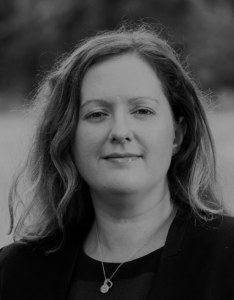The Paraplanner Club is a mentoring initiative devised by Siân Davies Cole and Chloe Phillips and sponsored by Professional Paraplanner. Rob Kingsbury spoke to Siân and Chloe about the inception of the Club and what it offers paraplanners
Launched on January 17, 2021, International Mentoring Day, the idea for The Paraplanner Club sprang out of the realisation by the founders, Siân Davies Cole and Chloe Phillips, that there wasn’t a mentoring scheme in the industry that they felt worked for them as paraplanners.
 Chloe explains: “I had been part of another mentoring scheme in the industry but it was saturated with advisers and business owners of IFA firms. There were hardly any paraplanners as mentors or mentees. So I put a message on a forum to see if anyone was interested in starting one and Siân got in touch.”
Chloe explains: “I had been part of another mentoring scheme in the industry but it was saturated with advisers and business owners of IFA firms. There were hardly any paraplanners as mentors or mentees. So I put a message on a forum to see if anyone was interested in starting one and Siân got in touch.”
Siân says she had reached a similar conclusion. She had experience of an in-house mentoring scheme while working for HSBC earlier in her career. “The bank knew I was ambitious and wanted to get on and in the scheme you could match what you wanted to discuss with a specific mentor. It worked well for me in a number of different ways. I’ve now been a paraplanner at different levels for a decade and I have had support and encouragement over the years. Now, using my experience of building my career and of running teams, I want to give something back to the paraplanning community and a mentoring scheme seems like a good way to do that.”
 Siân continues: “There are mentoring schemes out there but they are run by organisations for their members. As paraplanners we usually have a membership with at least one organisation in order to maintain our qualifications, however these are expensive and with many paraplanners or administrators having to self-fund their membership we want to remove that barrier for others to gain access to a mentoring scheme.
Siân continues: “There are mentoring schemes out there but they are run by organisations for their members. As paraplanners we usually have a membership with at least one organisation in order to maintain our qualifications, however these are expensive and with many paraplanners or administrators having to self-fund their membership we want to remove that barrier for others to gain access to a mentoring scheme.
“Also, as Chloe says, these schemes are mainly financial adviser focussed but advisers’ mentoring needs are likely to be very different to those required by paraplanners.”
“We wanted to create a mentoring scheme which is open to anyone who wants to be an awesome paraplanner, at any level, for free, where they can come and talk privately and in strictest confidence to someone about any questions or issues they may have. It’s an initiative which exists to help the paraplanning community in a direct and positive way and where people with experience who want to give back can get involved.”
“We’ve titled it: ‘A mentoring scheme designed by paraplanners, for paraplanners’,” adds Chloe.
Benefits of a mentoring scheme
So what are the benefits of a mentoring scheme and how will it work?
“Broadly speaking, I see mentoring as enabling someone to take control of their own destiny, helping them take the power to make decisions and do what they want to do,” Siân says. “When people have to make decisions, especially tough ones, it can be quite emotional. Mentors can help people get over the emotion and look at things practically, to see what they need to do take charge of the situation and change it.
“Often it can be helping people realise what they do want. It can be about taking a step back and seeing, for example, that it’s not about getting a promotion and/or more money, it’s maybe more about finding a role that gives you job satisfaction or changing your role to achieve that, or achieving a better work/life balance.
“It can be saying to someone, ‘you say you want to earn £50,000 a year, so imagine you’re there, you’ve got that, how has your life changed, has it made you happier?’ Mentoring often is seeing the situation from the outside, without the emotion, and asking the right questions, so the mentee can take that step back and look at things from a different angle. It may then be that achieving a £50,000 salary will give them what they want, or it may be something different they hadn’t thought of before. It’s having a level head and helping people to think about things, and maybe in a different way.”
“A mentor is a sounding board, someone to bounce ideas off,” says Chloe. “Also, they can ask those probing questions to find out what someone’s goals really are, to help them find their sense of direction.”
Siân adds: “It’s not about moaning or venting, although that might be a small part of the initial process. For the mentoring to work it has to be about the practicalities and for the mentee to find a way to think rationally about the issue, to own it, and to find a way to deal with it and come up with a solution.”
How sessions will work
The Paraplanner Club has been recruiting mentors over the past few months and has a number of volunteers now lined up able to help and provide guidance to their peers.
Each mentoring session is expected to last for an hour, so it is about making best use of that hour, Siân says. “We’ll agree what the mentee wants to get out of the session and the mentors will try to help them achieve that. They will be practical and the aim will be for the mentee to take ownership of the situation and to have action points to implement to help with that.
“It may need one session it may need several sessions, but if someone is coming back but not taking ownership or taking action then they are not going to achieve what they want and we’d have to address that as an issue.”
Chloe adds: “We want to help people to look positively at things and hopefully achieve what they want to achieve. Within that, self-understanding is really important.”
The mentors will have tools available to help understand the person and what they want to achieve and to get the conversation to flow.
“It may be that the person is confused and not sure what is the problem or why they feel a certain way and these tools can help them get a better understanding,” Chloe says. “When people go through the process they may feel that’s all they need, and they don’t need to go any further with it, or they may feel it would benefit to talk further. It really will be down to the individual and their particular circumstances.”
The type of questions mentors might be asked or the situations that arise are likely to depend on where people are in their career path, Chloe says.
“It could be people want help in getting their foot in the door as a paraplanner, finding the best route into the profession, whether they should become an administrator first, and what are the best exams to pursue.
“It could be paraplanners who want to progress to team leader or manager and would like guidance in how to do that, or it could be contemplating a move to setting up as an outsourced paraplanner and how to take that leap.”
Siân adds: “Most paraplanners I talk to are on a journey, they don’t want to stand still, which is why they are taking exams, they want to advance as time goes on. They may want to know about how to get a promotion, what the opportunities are and how to pursue them.
“There will also be people happy with where they are but, for example, want to know how to get on better with their line manager, or a colleague, or help with the exam process.
“It’s giving people a safe place to say what they think without any judgement and work through how to deal with it.”
For regulatory reasons, where mentors won’t be able to give advice is on individual client cases. “That kind of technical assistance we won’t be able to provide but we can help by pointing them to sources of tools, calculators and websites that might help someone find or work out the information they need,” Chloe says.
Confidentiality
The mentor and the mentee will both sign up to an agreement, included within which is the importance of confidentiality. Everything will stay within the meeting, there will be no recording of the conversation, says Siân. “It has to be a place of trust; a safe place where both mentee and mentor can have an open conversation.”
Paraplanners who would like to receive mentoring or who would like to be a mentor, can complete the appropriate from on The Paraplanner Club website: www.TheParaplannerClub.co.uk
Siân and Chloe are also contactable at: [email protected] as well as via Facebook, LinkedIn and Twitter.
This article was first published in the January 2021 issue of Professional Paraplanner.






























